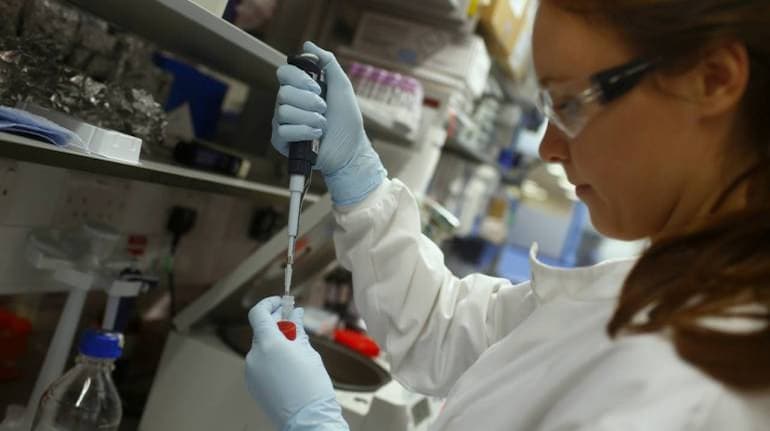
The Serum Institute of India said on Tuesday it plans this year to produce up to 60 million doses of a potential vaccine against the new coronavirus that is under clinical trial in Britain.
Serum, the world's largest maker of vaccines by volume, is mass-producing the vaccine candidate developed by the University of Oxford, which started testing it on humans last week, and is a leader in the global race to develop an antidote to the novel coronavirus.
Some 3.05 million people have been reported to be infected globally, and by a Reuters tally 211,376 have so far died from COVID-19, the respiratory disease caused by the coronavirus.
While the Oxford vaccine, called "ChAdOx1 nCoV-19", is yet to be proven to protect against COVID-19 infection, Serum decided to start making it after it had shown pre-clinical promise and had progressed into human trials, Serum Chief Executive Adar Poonawalla said.
"They are a bunch of very qualified, great scientists (at Oxford)... That's why we said we will go with this and that's why we are confident," Poonawalla told Reuters in a phone interview.
"Being a private limited company, not accountable to public investors or bankers, I can take a little risk and sideline some of the other commercial products and projects that I had planned in my existing facility," Poonawalla said.
More than 100 potential COVID-19 candidate vaccines are now under development by biotech and research teams around the world, and at least six of these are in preliminary testing in people in what are known as Phase 1 clinical trials.
Charlie Weller, head of vaccines at the UK-based global health charity The Wellcome Trust - which is seeking to ensure that COVID-19 funding and research efforts are global - said an effective COVID-19 vaccine would "save countless lives".
"But alongside COVID-19 vaccine development, we must continue to focus on routine immunisation for everyone and maintain the production of existing vaccines," she said.
Poonawalla said he hoped trials of the Oxford vaccine, due to finish in about September, would be successful. Oxford scientists said last week the main focus of initial tests was to ascertain not only whether the vaccine worked but that it induced good immune responses and no unacceptable side effects.
Serum, owned by the Indian billionaire Cyrus Poonawalla, plans to make the vaccine at its two manufacturing plants in Pune, aiming to produce up to 400 million doses next year if all goes well, Poonawalla said.
VACCINE FREE OF CHARGE FOR PEOPLE
"A majority of the vaccine, at least initially, would have to go to our countrymen before it goes abroad," Poonawalla said, adding that Serum would leave it to the Indian government to decide which countries would get how much of the vaccine and when.
Serum envisages a price of 1,000 rupees per vaccine but governments would give it to people without charge, he said.
Responding in a statement on Wednesday, Wellcome's Weller said: "We need a vaccine that will work for the world, and any advances must be available to all countries equally, without exception."
Poonawalla said that Indian Prime Minister Narendra Modi's office was "very closely" involved and that the company hopes the government will help cover the cost of making the experimental vaccine.
Over roughly the next five months, Serum will spend some 300 million to 400 million rupees on making around 3-5 million doses per month, he said. "(The government) are very happy to share some risk and fund something with us, but we haven't really pencilled anything down yet," Poonawalla said.
Serum has also partnered with the U.S. biotech firm Codagenix and Austria's Themis on two other COVID-19 vaccine candidates and plans to announce a fourth alliance in a couple of weeks, he said.
Serum's board last week also agreed to invest roughly 6 billion rupees on making a new manufacturing unit to solely produce coronavirus vaccines, Poonawalla said.
($1 = 75.9640 Indian rupees)
Discover the latest business news, Sensex, and Nifty updates. Obtain Personal Finance insights, tax queries, and expert opinions on Moneycontrol or download the Moneycontrol App to stay updated!